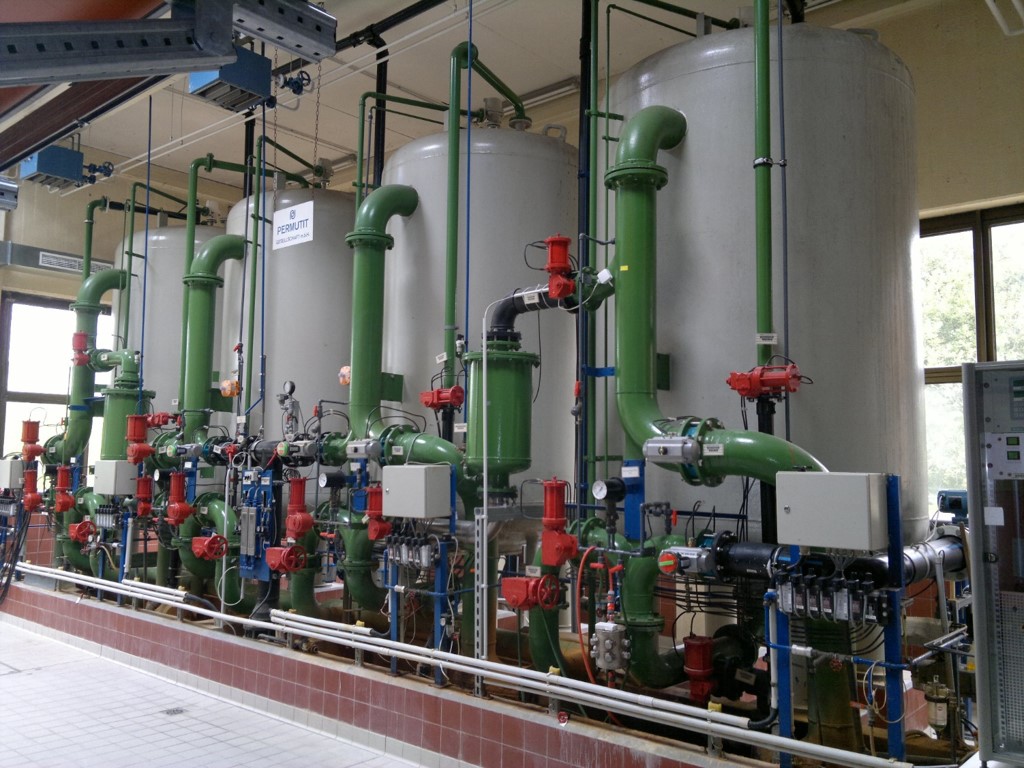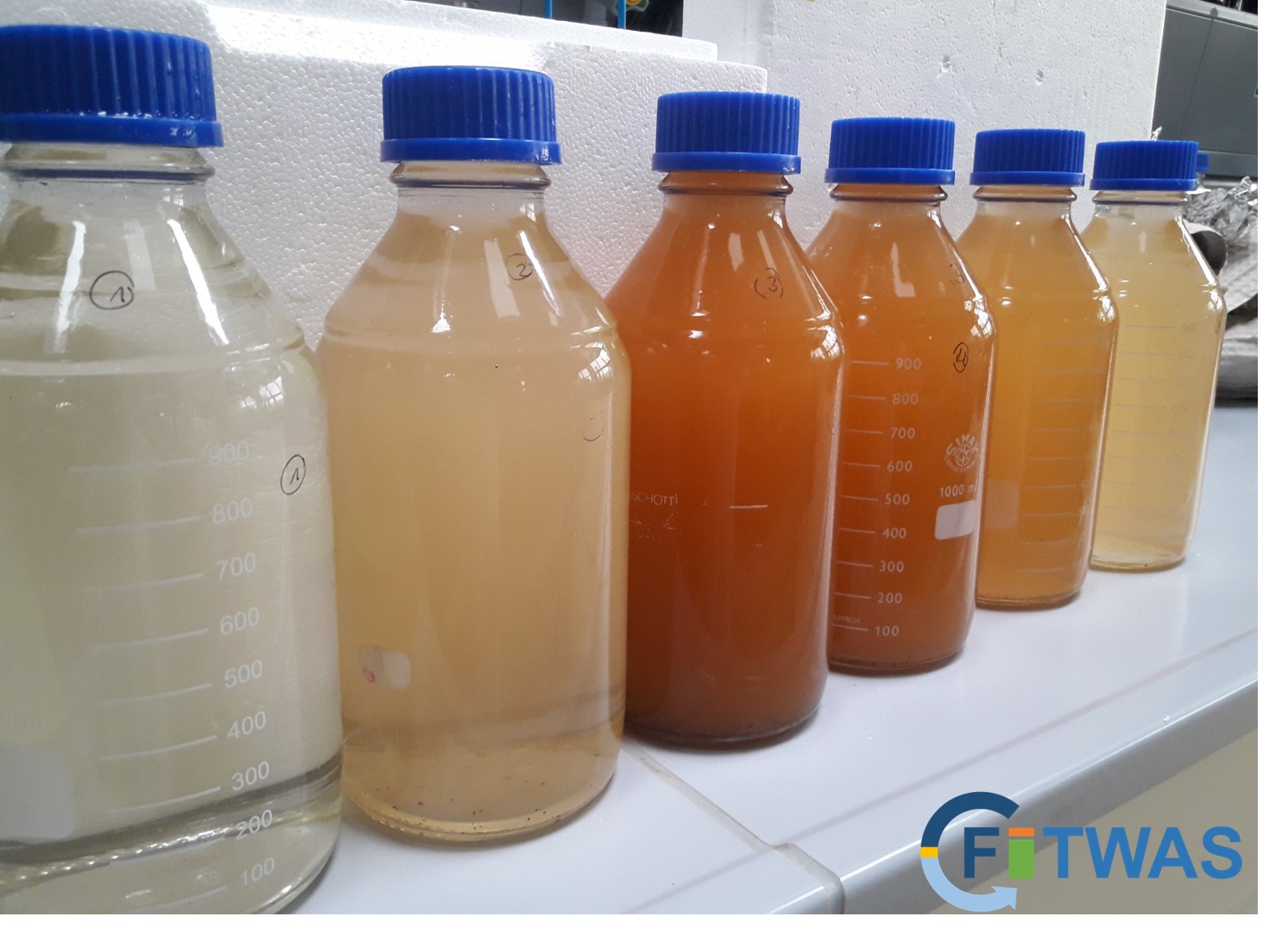In a number of ground water treatment plants in Germany, filter backwash water amounting to between 1 % and 4 % of the obtained groundwater is produced. This often iron and manganese containing backwash water is currently generally disposed of as wastewater and is thereby lost to the drinking water production. In contrast, the drinking water demand is growing, regionally distinctly, and the supply is declining seasonally, as a result of climate, demographic, and structural changes.
The aim of the FITWAS project is, on the one hand, to enhance the availability of drinking water by reusing the filter backwash water produced during groundwater treatment. On the other hand, the reuse potential of the filter sludge is to be utilized.
To develop innovative and viable processes for the usage of filter backwash water as well as filter sludge, membrane processes with different concepts, modules and materials are studied and compared to conventional treatment methods (for example sand filtration), respectively disposal, utilizing laboratory experiments as well as practical tests at four water treatment locations. One innovative approach is a process based on immersed ceramic membranes, which brings benefits towards the energy demand and promises stability during operation.
Funding: Federal Ministry of Education and Research
Project duration: February 2021 till January 2024
Partners:

Water treatment facility at UBA location in Berlin-Marienfelde for groundwater treatment
Source: Umweltbundesamt

Pilot plant for the biological removal of iron and manganese from ground water
Source: Umweltbundesamt

Lab scale membrane system for water treatment
Source: Umweltbundesamt

Flat sheet membrane with surface layer after treatment of filter backwash water (lab scale)
Source: Umweltbundesamt






